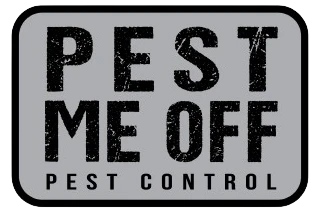The kitchen is the heart of any home, but it can also attract unwanted guests if not properly maintained. Pests like ants, cockroaches, rodents, and flies thrive in food-rich environments, making the kitchen a prime target. Keeping them out requires a proactive approach, combining cleanliness, structural maintenance, and preventive measures. If left unchecked, infestations can lead to food contamination, structural damage, and potential health hazards.
For homeowners and businesses, keeping pests away is essential to maintaining a safe and hygienic space. A well-planned pest control service can help eliminate existing issues, but prevention is always the best defense. The following steps will help secure your kitchen against invaders, ensuring it remains a clean and pest-free environment.
Maintain a Clean and Organized Kitchen
Pests thrive in areas with food sources, so maintaining cleanliness is key. A few simple habits can make a big difference in keeping them away.
- Wipe down surfaces regularly: Food crumbs and grease residue attract insects and rodents. Wiping countertops, stoves, and dining tables after every meal prevents buildup.
- Clean up spills immediately: Even small amounts of liquid or food spills can attract pests. Use a disinfectant to remove traces that might appeal to insects.
- Sweep and mop the floor daily: Tiny crumbs and food particles often fall onto the floor. Regular cleaning removes these temptations.
- Wash dishes promptly: Dirty dishes in the sink provide an open buffet for pests. Make it a habit to wash them immediately or store them in the dishwasher.
- Keep trash sealed and emptied regularly: Garbage bins are a hotspot for pests. Use a bin with a tight-fitting lid and empty it frequently to avoid attracting unwanted visitors.
Store Food Properly
Pests can chew through flimsy packaging and contaminate food, making proper storage a necessity.
- Use airtight containers: Dry goods like flour, sugar, rice, and cereal should be stored in glass or plastic containers with tight-sealing lids.
- Refrigerate perishables: Fruits, vegetables, and other perishable items should be kept in the refrigerator to avoid attracting flies and ants.
- Avoid leaving food out overnight: Any leftover food should be properly sealed and stored to prevent easy access for pests.
- Inspect grocery bags: Pests sometimes hitch a ride on food packaging. Before placing items in the pantry, check for any signs of infestation.
Seal Entry Points
Even the cleanest kitchens can become a target if pests find a way inside. Closing off their entry points makes it harder for them to invade.
- Check for cracks and crevices: Small gaps in walls, cabinets, or around plumbing allow pests easy access. Sealing these openings with caulk or steel wool helps block their entry.
- Install door sweeps: Gaps beneath doors provide an easy way for pests to enter. Adding a door sweep minimizes this risk.
- Inspect windows and vents: Torn screens or unsealed vents allow insects and rodents inside. Repairing these barriers helps keep pests out.
- Keep outdoor spaces clean: Overgrown vegetation, standing water, and piles of debris around the kitchen exterior can invite pests closer. Maintaining a tidy outdoor space reduces the risk of infestations.
Addressing Moisture Issues
Pests need water to survive, making excess moisture a significant attraction. Eliminating water sources helps deter them.
- Fix leaky pipes and faucets: Even a slow-dripping faucet can provide enough water for pests to survive. Regularly inspecting and fixing leaks prevents this issue.
- Use a dehumidifier if necessary: Humid environments encourage pests like cockroaches. A dehumidifier helps maintain a dry space.
- Dry sinks and countertops at night: Wiping up excess water before bedtime removes a potential drinking source for pests.
- Check under sinks and appliances: Water can accumulate in hidden areas. Regular inspections ensure that no moisture is present.
Dispose of Waste Properly
Improper waste disposal can create an ideal breeding ground for pests. Managing garbage correctly is crucial in preventing infestations.
- Use tightly sealed garbage bins: Open trash containers provide easy access to food scraps. Secure lids help keep pests out.
- Take out the trash daily: Even small amounts of waste can attract pests overnight. Regular disposal minimizes this risk.
- Rinse recyclables before storage: Residual food in cans, bottles, and cartons can lure pests. Rinsing them before placing them in the recycling bin helps prevent issues.
- Maintain outdoor trash areas: Outdoor garbage bins should be kept clean and positioned away from kitchen entrances to avoid attracting pests inside.
Be Mindful of Pet Food
Pet food can be just as tempting to pests as human food. Taking precautions helps prevent unwanted visitors.
- Store pet food in airtight containers: Bags of pet food should be transferred into sealed containers to keep pests out.
- Don’t leave food out overnight: Any uneaten pet food should be removed before bedtime to avoid attracting insects and rodents.
- Clean feeding areas: Pet food crumbs can accumulate under bowls. Regular cleaning ensures that no residue is left behind.
Monitor for Early Signs of Infestation
Detecting pests early allows for quick action before a minor issue becomes a major problem.
- Look for droppings: Small black specks or rodent droppings in cabinets and corners indicate an infestation.
- Check for gnawed packaging: Bite marks on food containers suggest rodent activity.
- Listen for unusual noises: Scratching sounds behind walls or in cabinets often signal rodent presence.
- Watch for live pests: Seeing insects or rodents during the day may indicate a larger problem, as many pests are nocturnal.
Use Natural Deterrents
Some natural solutions can help repel pests without the need for chemicals.
- Vinegar and lemon juice: Wiping surfaces with vinegar or lemon juice helps deter ants.
- Bay leaves in pantry areas: Placing bay leaves in storage areas can help keep insects away.
- Essential oils: Peppermint and lavender oils are known to repel certain pests. Applying them around entry points can provide extra protection.
Schedule Regular Inspections
Even with the best prevention methods, pests can still find ways inside. Routine inspections help identify potential problems before they escalate.
- Check cabinets and storage areas: Inspect pantry shelves and under sinks for signs of pests.
- Look behind appliances: Hidden areas around refrigerators, stoves, and dishwashers can harbor pests.
- Examine outdoor areas: Cracks in the foundation, gaps around doors, and clutter near the kitchen entrance can provide entry points.
Why Choose Pest Me Off?
When pest prevention efforts fall short, professional intervention may be necessary. Pest Me Off specializes in identifying problem areas, eliminating infestations, and providing long-term solutions to keep your kitchen pest-free.
- Expert inspections: Our team thoroughly assesses your space to find potential entry points and risk factors.
- Safe and effective treatments: We use industry-approved methods that target pests without compromising kitchen safety.
- Customized prevention plans: Every kitchen is unique, and we create tailored strategies to keep pests from returning.
- Ongoing support: We offer guidance and follow-ups to ensure lasting results.
Keeping your kitchen pest-free requires consistent effort, but with the right precautions and professional assistance, infestations can be prevented. By staying vigilant and addressing risk factors early, you can maintain a safe and sanitary cooking space for your home or business.

